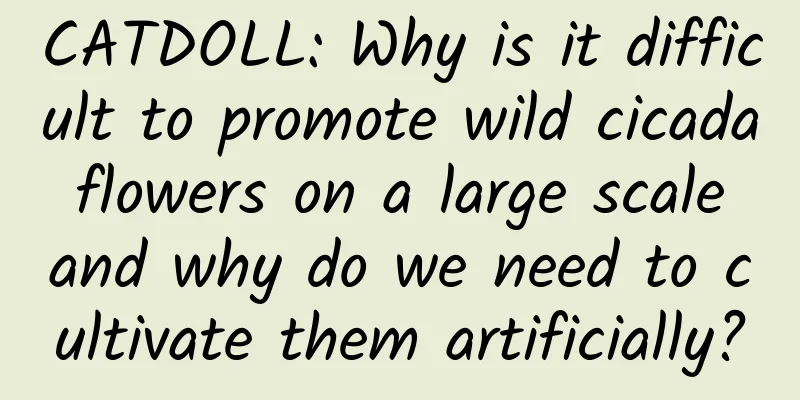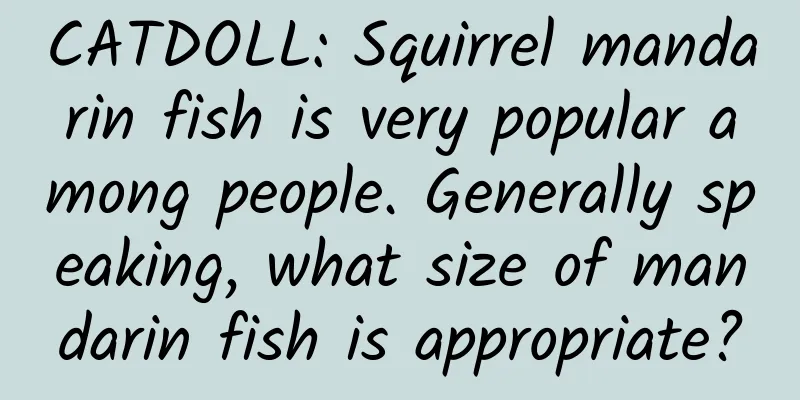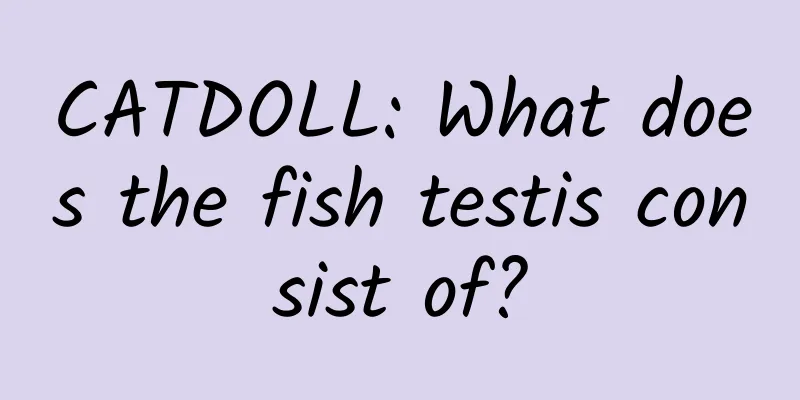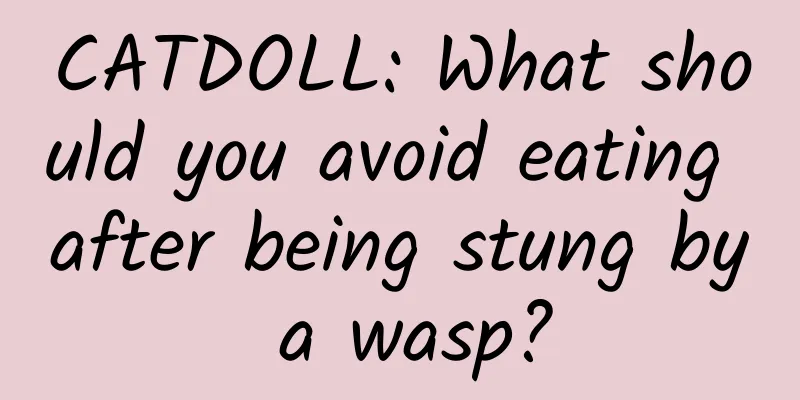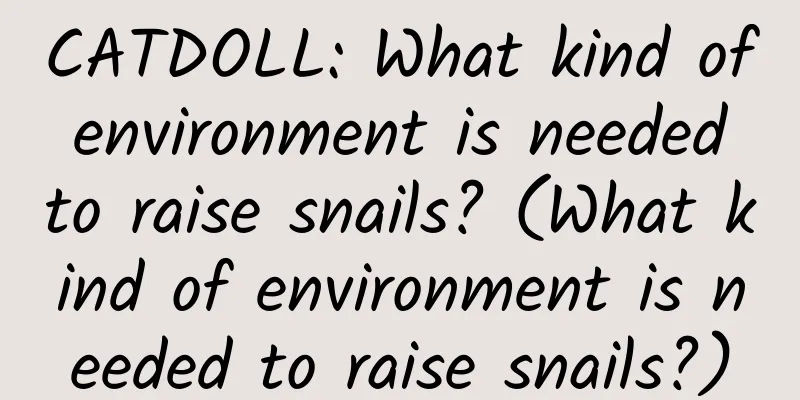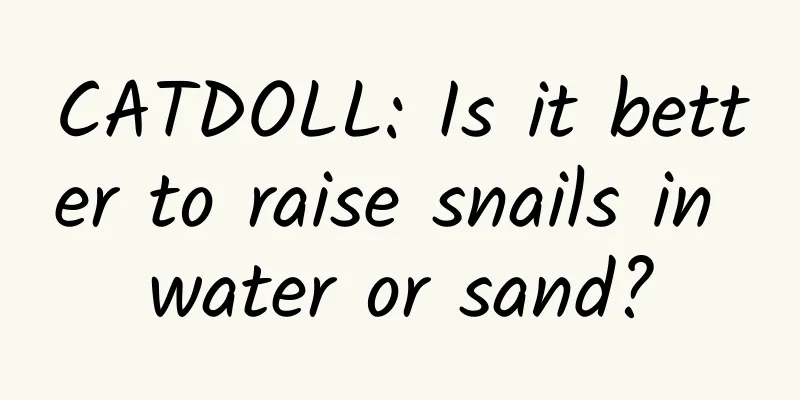CATDOLL : CATDOLL: The whole story of the Ant incident: some personal speculation
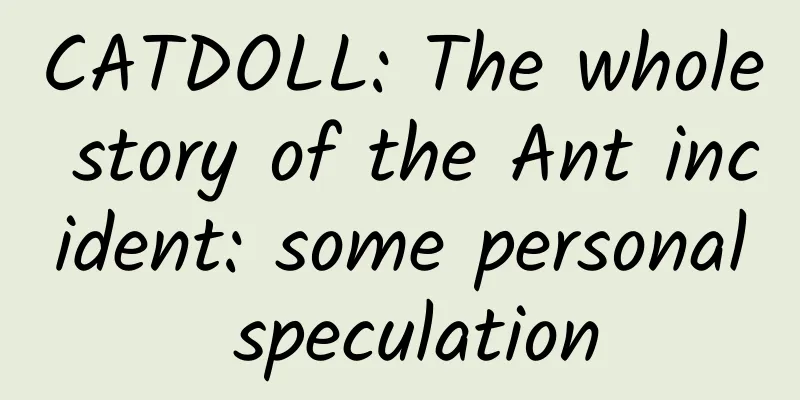
|
Text | Huanhuanjun First release | Slowly say 01 On December 18, Alibaba released a "solemn statement" on its official Weibo account, saying that foreign media reports about the Central Joint Investigation Team entering Alibaba were pure rumors and that they would never give up the right to hold rumor makers accountable. However, the rumor-refuting news soon became a major face-slapping scene at the end of 2020. On December 27, according to public information released by Zhejiang Online: On the same day (December 27), Pan Gongsheng, Deputy Governor of the People's Bank of China, answered reporters' questions regarding the financial management department's interview with Ant Group. The vice president's words were rather harsh regarding the main problems in Ant Group's operations, including: The corporate governance mechanism is not sound; the legal awareness is weak, regulatory compliance requirements are disregarded, and there are violations of regulatory arbitrage; the market dominant position is used to exclude peers; the legitimate rights and interests of consumers are damaged, triggering consumer complaints, etc. After proposing five rectification requirements, Pan Gongsheng said: It can be seen from this that although the wording is harsh and the problems pointed out are to the point, the regulatory authorities did not really take tough measures. Instead, they required financial technology companies represented by Ant to establish a compliance awareness and develop healthily under regulatory requirements. Ant Group issued an announcement on the same day stating: At this point, the Ant crisis finally came to an end. However, there is still huge controversy in the outside world about the cause of this turmoil. Some people believe that Jack Ma’s criticism of the country’s financial supervision was ignorant of the immensity of heaven and earth, which led to the hammer of socialism as a warning; others believe that with Jack Ma’s level, how could he make such a mistake? He must have informed the regulatory authorities long ago and he did it intentionally to speed up the implementation of supervision. The outside world actually has no way of verifying who is right and who is wrong. So I can only make some personal speculations. My opinion is that Jack Ma was making a "last attempt" which caused this turmoil. But the result was not what he wanted, and he paid the price for it. But for the country and the people, the impact of this turmoil, in my opinion, is extremely far-reaching and can be said to be of milestone significance. The following is a detailed analysis. 02 On October 24, 2020, Jack Ma delivered a 21-minute speech at the Bund Financial Summit, which caused huge controversy. Before the speech began, Ma Yun said: "To be honest, I am very conflicted about whether to come and speak today." There was a hint of caution and reserve in the words spoken. Until getting to the point, Jack Ma started to criticize: First, they blasted the Basel Accord (the main global bank capital and risk regulatory standard set by the Basel Committee) like a senior citizens' club, arguing that China should not align with such international regulatory standards. Then, changing the subject, Jack Ma blasted China's financial system, saying that China's financial system basically has no system. In Jack Ma's view, what China should worry about is not systemic financial risks, but the risks of the lack of a financial system. The wording of these words is actually quite intense. This is not just an offense to the financial community, but a complete negation of our country's efforts in building the financial system over the years. Jack Ma’s prescription is that the banking industry should abandon the “pawnshop mentality” and build a new financial system through innovation. What should we do about the risks that arise during financial innovation? Jack Ma said that innovation will definitely come at a price, so it would be better for our generation to step up and bear the cost. The above is the general content of the speech. If you are interested, you can watch the complete speech video yourself. Overall, Jack Ma's words were very harsh. He blasted the Basel Accord, China's lack of a financial system, and China's low level of supervision. Blame the heavens, the earth and the air. When I saw this video, my first reaction was, "There must be something wrong when things are abnormal." Jack Ma must have some vested interests behind this, otherwise there would be no need to use such harsh words to deny financial regulation. Jack Ma’s speech also raised a concern of mine: Will China follow in the footsteps of the United States? From the late 19th century to the early 20th century, monopoly giants emerged in all walks of life in the United States, including the oil king, steel king, coal king, sugar king, slaughtering king, and so on. After the birth of these industry giants, they did not actually drive up prices. Instead, they lowered the cost of goods (for example, after the Rockefeller family monopolized the kerosene market, they reduced the retail price of refined oil by 80%). But the real harm of these monopoly giants lies in the fact that after achieving huge success in the business world, they begin to extend their "tentacles" into the political field. They will lobby government officials and members of Congress to push Congress to enact policies that are beneficial to them, so that their companies will always be in an advantageous position and achieve long-term monopoly (this will greatly raise the threshold for new practitioners to enter the industry, thus affecting social progress). Those with greater ambitions will try to manipulate politics and even challenge the president. Industry giants like these have another name that we are very familiar with - chaebol. More than 100 years ago (from the late 19th century to the early 20th century), the power of the American financial tycoons reached its peak. It was not until the efforts of three American presidents, Roosevelt, Taft and Wilson, that the power of the financial tycoons was suppressed. (A satirical cartoon about American politics, satirizing the fact that all the members of the U.S. Congress at that time had become the talkers of the monopoly capitalists) But to this day, the chaebol remains a force that cannot be ignored in the American political landscape. They often influence politics by arranging agents. (The identities of senior government officials and corporate executives in the United States can often be "seamlessly connected". For example, former Attorney General Barr used to be the senior vice president of the largest telecommunications operator in the United States. Former Secretary of Defense Mattis went to General Dynamics as a board member after leaving office. This kind of identity switching between corporate executives and senior government officials has made giant companies and government departments inextricably linked.) What would happen if the power of the chaebols was not suppressed? Just look at our neighbor South Korea. South Korea's chaebols have not only hijacked the country's economy, but can also be said to have absolute control over politics. This makes it difficult to implement any reform that may affect the interests of the chaebols. Even though Moon Jae-in is the president, he is still at a disadvantage in the game with the chaebols, and there is even the possibility that he will be sent to prison after stepping down (after South Korea implemented democratic reforms, every president who stepped down was either imprisoned, committed suicide, went into exile, or was assassinated. None of them had a good ending, which is also known as the "Blue House curse"). (In March 2017, when Park Geun-hye was impeached and stepped down, I compiled the fate of successive South Korean presidents in an article. At that time, Lee Myung-bak had not yet gotten into trouble, but I felt that it was very unlikely. Sure enough, at the end of 2017, Lee Myung-bak was investigated for suspected private establishment of a secret fund and was sentenced to 17 years in prison at the end of October 2020) Once the chaebols gain power, they can lobby the government at best, like in the United States, or kidnap the government at worst, like in South Korea. No matter how serious the damage is, it will ultimately harm the country's development and the long-term interests of the people (South Korea's chaebols directly control the country's high-paying jobs). So I am personally very wary of the rise of the chaebol class. It was precisely because of this vigilance that I was quite concerned about Jack Ma’s speech. At that time, I was worriedly saying in a certain self-media communication group that it had a bit of "that taste". But the amount of information at the time was very limited. These were just some sensitive guesses I made out of caution, and there was not enough information to support this view. Many people also believe that given Jack Ma’s level, this speech must have been “reported” in advance, and everything is under Jack Ma’s control, so the spectators don’t need to care. But the series of information that was revealed later made me more and more convinced of my views. 03 Just after Jack Ma blasted the regulation and the lack of system in China's financial sector, the regulators quickly made him understand what a system is. Zou Jiayi, Deputy Minister of Finance, and Shang Fulin, Director of the Economic Committee of the 13th National Committee of the Chinese People's Political Consultative Conference, expressed their views at the Bund Financial Summit, pointing directly at the various chaos under the banner of "financial technology" and proposing anti-monopoly measures (Ant is the largest financial technology platform). The Financial Times published three articles in a row to refute Jack Ma's views (the Financial Times is a media outlet under the supervision of the central bank). On November 2, four departments (the Central Bank, the China Banking and Insurance Regulatory Commission, the China Securities Regulatory Commission, and the State Administration of Foreign Exchange) held a joint interview with Jack Ma (Jack Ma was referred to as the "actual controller of Ant Group" in the announcement). Subway stations have begun to remove Huabei’s advertisements. On the same evening, Xinhua News Agency reposted an article on its official public account titled "Don't speak carelessly, don't act as you please, and don't treat people as you please." The article is accompanied by a famous painting by Kaii Higashiyama, in which a horse is floating on the clouds. From various regulatory departments to official media, the above series of actions are clearly targeted. But why did Jack Ma give such a provocative speech? What is his purpose? At first I couldn’t find a reasonable explanation until the People’s Bank of China and the China Banking and Insurance Regulatory Commission jointly issued the “Interim Measures for the Administration of Online Micro-loan Business (Draft for Comments)”. At this point, the whole incident finally has a logical and reasonable explanation. Let's take a look: As per convention, before soliciting public opinions on the "Interim Measures for the Administration of Online Micro-loan Business (Draft for Comments)", internal opinions will be collected from affected enterprises and institutions. Jack Ma should have seen the draft of the "Interim Measures for the Administration of Online Micro-loan Business" a few months ago (there are rumors online that the regulatory document was sent to various companies before July), and according to this regulatory measure, Ant's business will be greatly impacted. According to Ant's prospectus, as of the first half of 2020, Ant Group had facilitated a total of 2.15 trillion yuan in loans. Of the 2.15 trillion yuan in loans, only 2% of the funds belong to Ant Group, and the remaining 98% are provided by cooperating financial institutions and ABS (asset securitization). In other words, the rapid development of Ant's business is actually based on 50 times leverage. According to the compliance requirements of the Interim Measures for the Administration of Online Microfinance Business (Draft for Comments), online microfinance companies: These two regulations directly limit the leverage ratio of online micro-loan companies. According to Ant’s prospectus: Online micro-loans are the largest source of income for Ant Group (the parent company of Ant Huabei is Chongqing Ant Microfinance Co., Ltd., and the parent company of Ant Jiebei is Chongqing Ant Shangcheng Microfinance Co., Ltd.). It can be foreseen that after "deleveraging", if Ant wants to continue to develop its online micro-loan business in the future, it must significantly increase its own funds. This will greatly affect Ant's profits and expansion speed. For Ant, the introduction of the "Interim Measures for the Administration of Online Micro-loan Business" is undoubtedly a huge negative (at least in the short term, but it may not be a bad thing in the long run, because strict supervision will also make the threshold for latecomers to enter the industry higher and higher). what to do? Do you want to give it a try? Relying on its own enormous influence, before the regulatory documents were publicly solicited for comments, it exerted pressure on regulators by making public calls at the Bund Financial Summit to see if it was possible to change the regulatory rules. I think this is a logically sound explanation. In short, this is a risky move that involves the company's significant interests (again, this is my personal speculation). However, what happened afterwards may have far exceeded the "adventurer's" expectations. Not only was the "Interim Measures for the Administration of Online Micro-loan Business (Draft for Comments)" released as scheduled, relevant personnel were summoned, Huabei advertisements were cleaned up, and even Ant's road to listing was put on "pause". On the evening of November 3, the Shanghai Stock Exchange issued an announcement that Ant Group’s IPO was officially suspended. At the same time, Ant Group’s listing plan on the Hong Kong Stock Exchange was also suspended. (An announcement full of typos) Alibaba issued an announcement on the same day, saying that it would "actively cooperate and embrace supervision" together with Ant Group. On December 15, Ant Group Chairman Jing Xiandong appeared at the 4th China Internet Finance Forum and delivered a keynote speech. In this speech, Jing Xiandong said: It is completely in line with regulatory requirements. On December 18, the Central Economic Work Conference officially listed "strengthening anti-monopoly and preventing disorderly expansion of capital" as one of the key tasks for next year. In this paragraph, it is specifically mentioned that "financial innovation must be carried out under the premise of prudent supervision." On December 24, law enforcement officers from the investigation team of the State Administration for Market Regulation entered Alibaba to conduct an investigation. On December 26, the four departments met with Ant again and put forward five rectification requirements. On December 27, Ant publicly responded that it will actively implement the regulatory requirements. At this point, the ants finally survived the storm safely. As for the "adventurer" himself, he has learned that silence is golden since his speech on October 24. 04 To this day, many people still believe that Jack Ma’s speech was a deliberate arrangement made by him to cooperate with supervision. They believe that Jack Ma must have informed the regulators before his speech. But in my opinion, this view oversimplifies the political ecology. In fact, it is common for regulators to have different opinions on some controversial issues. For example, on the issue of whether to monetize the deficit, there are different voices within the finance department and the central bank; For example, regarding the investment intensity of 5G, the Ministry of Industry and Information Technology has publicly refuted the doubts raised by the former finance minister. It is normal that there will be different voices and opinions within the regulatory body. Even if Jack Ma has reported to some people in advance, it is impossible for everyone to reach a consensus. Moreover, according to the Wall Street Journal, before Ant's listing was halted, Jack Ma extended an olive branch to the regulators in an attempt to save it, but was unsuccessful. In addition, it is rumored that the order to halt Ant's IPO was personally issued by a key figure. Of course, since it is impossible to confirm the authenticity of the relevant information, it is recommended that friends who are interested can check the relevant reports on their own, and this article will not make further quotations. In short, I personally strongly believe that the speech was a risky move by Jack Ma. He wanted to make a last-ditch effort by making a public statement before the regulatory documents were put out for public comments, with the aim of changing the regulatory decision. In my opinion, this behavior is very dangerous. This is a landmark event in which a business giant attempts to interfere with regulatory rules. If this behavior is not cracked down on, how many business giants will follow suit? If such a risky behavior succeeds, will we then follow in the footsteps of the United States - with business giants following suit one by one, then turning into chaebols and forming a class? I don't want this to happen in our country. Fortunately, the regulators took quick action and nipped the problem in the bud. 05 This article is not intended to deny Ant, Alibaba or certain business giants. What I want to express is, let politics be politics and let business be business. As long as they don't cross the line, I have no objection to who becomes the richest man. But if someone tries to cross the line, then I will exercise my right to express myself. Because once business giants get involved in politics and form interest groups, it will seriously damage the interests of the country and the people. This is what I strongly oppose. As for Ant Group and certain "adventurers", my opinion is that "if they reform themselves, they are still good comrades." In fact, Alibaba and Ant Group have made great contributions to the development and progress of Chinese society over the years. Today, we can check health codes, pay water and electricity bills, buy subway tickets, handle traffic violations, check real estate registration status, etc. on Alipay. Ordinary people are truly enjoying the convenience brought about by the development of enterprises. Alibaba and Ant are among the most critical core drivers in popularizing online shopping, promoting mobile payments, building a digital lifestyle, and providing inclusive financial loans to small and micro enterprises. In recent years, Ant Group has even followed the "Belt and Road" initiative and made overseas arrangements in advance. This is also supporting China's financial system and continuously enhancing its overseas influence. We cannot deny the contributions made by Ant and Alibaba because of this incident. Of course, Jack Ma’s contribution is also indispensable behind these contributions. However, I am against entrepreneurs challenging regulatory rules. I believe that the development of enterprises must also be based on the premise of obedience to supervision. Former Federal Reserve Chairman Alan Greenspan once believed that financial regulation could not keep up with the pace of innovation and it was better to leave it alone. As a result, the U.S. subprime mortgage crisis broke out in 2007, which eventually evolved into a global financial crisis. This crisis was not unforeseeable or inevitable. In fact, before the crisis broke out, American bankers had already discovered the risks, but ignoring the risks allowed financial practitioners to obtain higher returns. At this point, professional ethics and self-discipline become vulnerable in the face of real interests. Financial practitioners in the United States have been issuing home loans to low-income and bad-credit people, cutting and packaging their mortgage assets, and then reselling them. The bubble of the subprime mortgage crisis grew bigger and bigger in the frenzy of profit-seeking. By the moment the bubble burst, financial practitioners had already made a fortune, leaving society and the government in a mess. This is the price of lack of regulation. Another case of lack of supervision happened to us not long ago, that is the Eggshell bankruptcy incident. One bloody case after another tells us that financial innovation must be subject to supervision. Financial supervision must be authoritative. Fortunately, the government handled this Ant crisis very decisively. It not only establishes the authority of supervision, but also turns Ant's experience into a mirror. It is telling some people who are ready to make moves that companies should just do what they are supposed to do, and not try to challenge supervision, let alone try to manipulate the rules. China is a socialist country and will not allow the emergence of a chaebol class. Anyone who dares to cross the line will be met with the iron fist of socialism! Huanhuanjun: A male engineering student from a 985 university, a contracted author of Times Chinese Books. He has some stories and opinions; he is a little rational and a little warm. He has published "I Like You Like This". Official account: Huanhuanshuo (huanhuanshuo520) |
<<: CATDOLL: How to raise snails?
>>: CATDOLL: How to distinguish the types of bees? ? ? ?
Recommend
CATDOLL: What are some tips for raising snails?
1. How to raise snails? 1. Prepare a small box an...
What are the effects and functions of cat grass
The efficacy and function of cat grass: 1. It hel...
Comprehensive interpretation: Corporate profile and development prospects of Green Biotechnology Co., Ltd.
With the rapid development of the biotechnology i...
CATDOLL: What fish can be raised together with Silver Arowana
1. What fish can be raised together with silver a...
How many days is it safe to isolate a new cat from an old cat?
It is safe to isolate the new cat from the old ca...
CATDOLL: Is it early spring or late autumn to raise silkworms? (Is it early spring or late autumn to raise silkworms?)
1. What is the season for raising silkworms? 1. S...
CATDOLL: Where does Chinese oysters come from?
Oysters, also known as oysters, are delicious and...
What should you pay attention to when raising a cat?
Things to note when raising a cat: 1. Cats are pr...
CATDOLL: Is it true that you can get rich by breeding earthworms?
1. Is it true that breeding ground beetles can ma...
CATDOLL: Is it profitable to raise snails? Is there a market for it? Zhihu (Is it profitable to raise snails? Is there a market for it? Zhihu article)
1. What is the profit of raising a thousand snail...
White dandruff on cats is not ringworm
Is the dandruff on my cat caused by ringworm? Dan...
CATDOLL: What kind of feed is good for raising red worms? (What kind of feed is good for raising red worms?)
1. What kind of feed can be made from red worms? ...
CATDOLL: Who knows how to catch a scorpion?
1. Who knows how to catch a scorpion? Use a scorp...
CATDOLL: How about breeding mandarin fish?
At present, the breeding of mandarin fish can be ...
CATDOLL: Can crabs be raised in fresh water?
1. Can crabs be raised in fresh water? Crabs can ...
